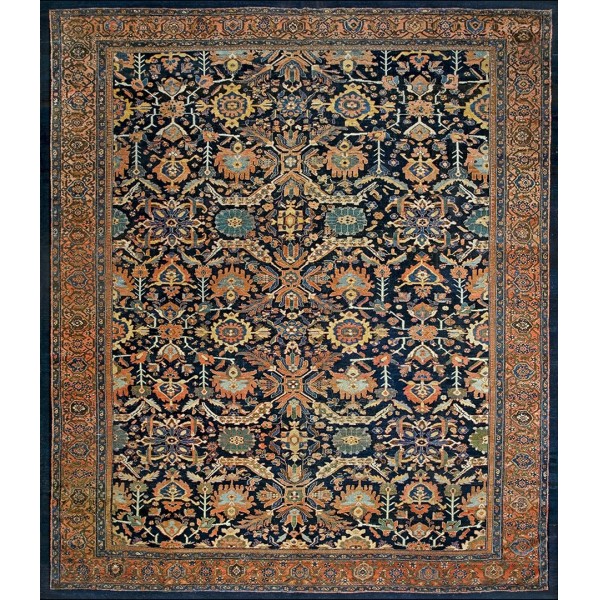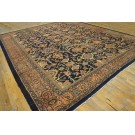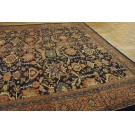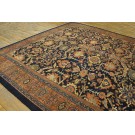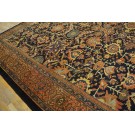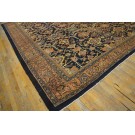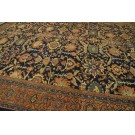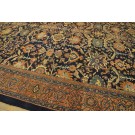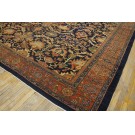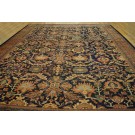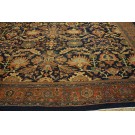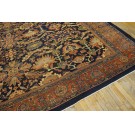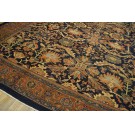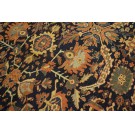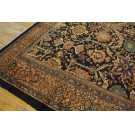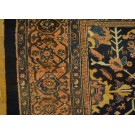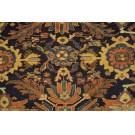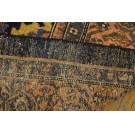19th Century Persian Malayer Carpet
Unusual allover palmette and leaf patterns, often on navy grounds, are a Malayer specialty. Here there is a subtle three-dimensional effect of leaves crossing over one another. The rendition is angular, not curvilinear, and the weavers did not work from a scale paper cartoon as was common in other parts of Persia at this time. The orange-red turtle palmette border is smaller in scale and more traditional in style than the original,creative fielding this c. 1890 west Persian Malayer carpet.
| Stock ID: | #19414 |
| General Rug Type: | Persian Informal |
| Specific Rug Type: | Mashad |
| Circa: | 1890 |
| Ground Color: | Dark Blue |
| Border Color: | Burnt Rust |
| Origin: | Persia |
| Material: | Wool |
| Weave: | Pile - Knotted |
| Shape: | Square |
| Width: | 12' 4" ( 376 cm ) |
| Length: | 14' 8" ( 447 cm ) |
DescriptionMashadThe largest city in Khorassan Province, northeast Iran. The carpet industry there is a late 19th century creation of relocated Tabriz merchants. Both Turkish (Turkhaff) and Persian-(Farsihaft) knotted rugs are produced in large sizes up to 20 x 30, in rich colors including a mulberry. Red designs are strictly curvilinear and often large animals and birds appear. Open fields with medallion and corner ornamentation are common. The texture is thick and heavy. The use of jufti knots allows rapid production. In the 20th century, several renowned workshops (Emogli, | |
| Tearsheet Download | |
